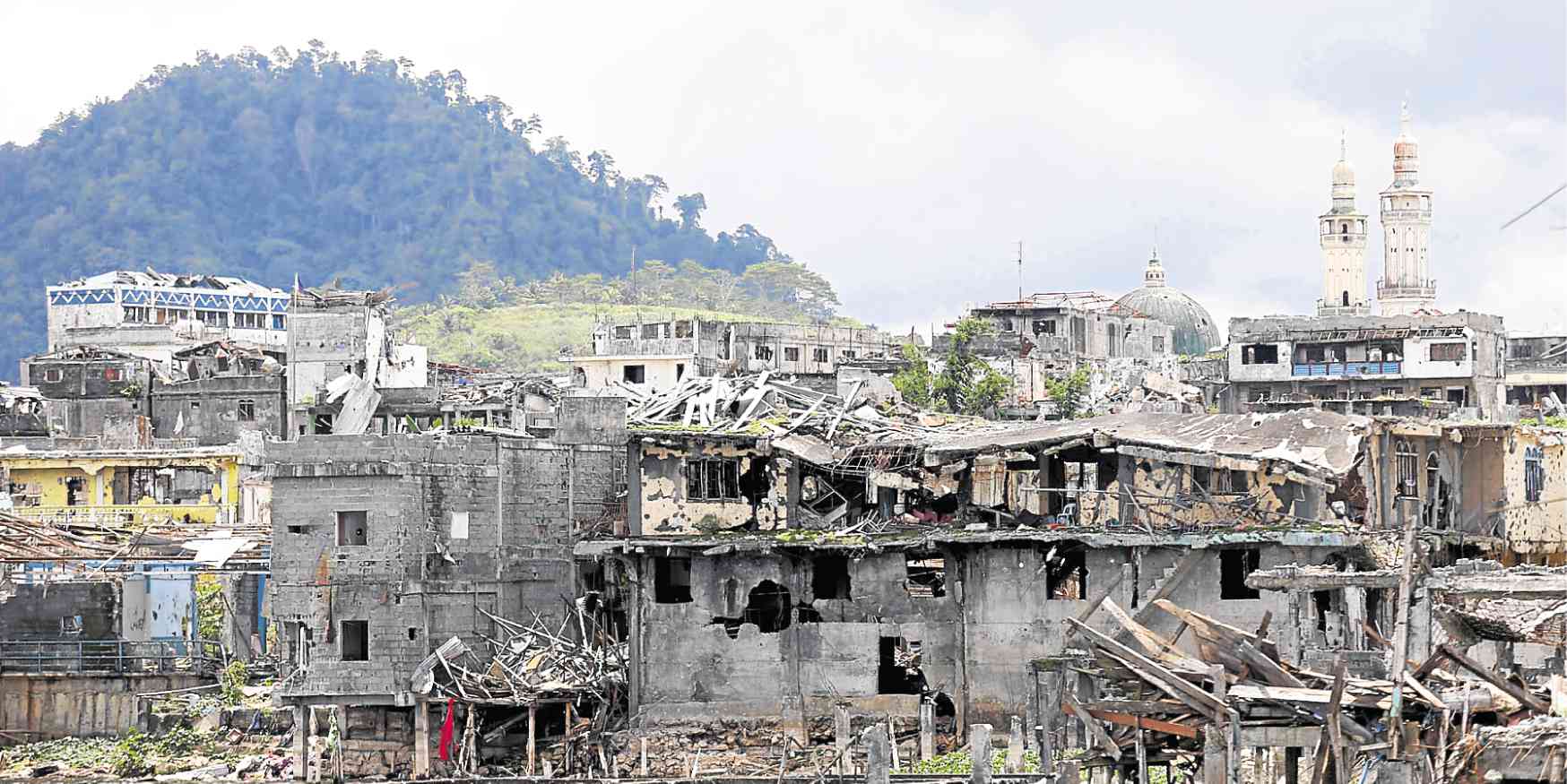Marawi not a ‘ghost city’, Washington Post article ‘not true’ – task force head

MARAWI AID Foreign governments and agencies are contributing funds to rebuild Marawi City and help its residents recover from the five-month war between government troops and the Maute terror group. —JEOFFREY MAITEM
MANILA, Philippines – The Task Force Bangon Marawi (TFBM) on Tuesday disputed a news article, claiming war-torn Marawi City remains a “ghost town” more than a year after the military dislodged Islamic State-inspired Maute group in the area.
TFBM chairman Eduardo del Rosario asserted Marawi City is currently “alive and booming” and “full of economic activity” contrary to a Washington Post article published February 1, which stated “Marawi looks almost as it did when the bombs and bullets stopped flying in October 2017.” The news article noted that no new structure has been built and debris has not been cleared in Marawi City since the war ended.
Marawi City served as battle ground for five months between the armed forces and Maute group, which attempted to establish a caliphate there.
“Wala pong katotohanan itong lumabas sa Washington Post,” Del Rosario said in a press briefing.
“We would just like to say the reality on the ground na ito ay walang katugmang nangyayari on the ground na ghost city siya but instead it’s full of economic activity,” he added.
Article continues after this advertisementDel Rosario further said: “Ang Marawi city ngayon, if you will go there, mahihirapan kang makarating hanggang sa center of the city dahil napakagrabe ng traffic.”
Article continues after this advertisement“Business activities, economic activities, and movement of people. So many vehicles ang nagpupunta na sa Marawi city and this triggers economic activity,” he also said.
Maute group led by brothers Omar and Abdullah Maute and assisted by a faction of the Abu Sayyaf group under Isnilon Hapilon started their siege of Marawi City on May 23, 2017.
This triggered an armed conflict that lasted for five months. President Rodrigo Duterte declared Marawi City “liberated from terrorist influence” on October 17, 2017.
According to Del Rosario, the Washington Post article “overly dramatized negatively” the current situation in Marawi City. He underscored that the most-devastated area in the city was only 250 hectares as opposed to the city’s total area of 8,000 hectares.
“If the writer of the article was referring to the most-affected area, that is only 250 hectares and that was devastated during the siege for five months,” Del Rosario said.
“And 250 hectares is just .03 percent of the total area of 8,000 hectares. Mukhang masyadong na-dramatize negatively (ang situation),” he added.
Del Rosario said efforts to rehabilitate and reconstruct Marawi are still ongoing. /kga